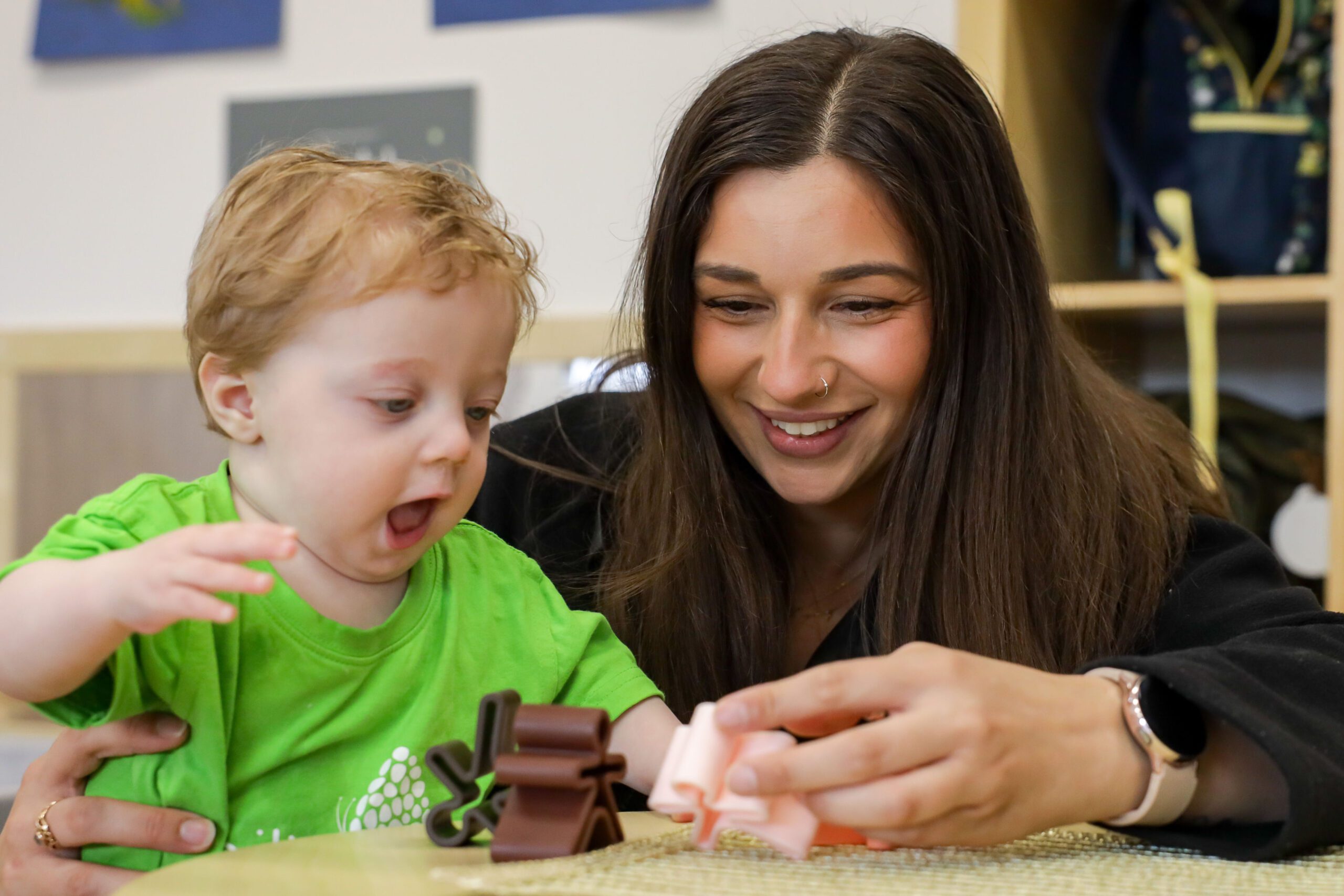
The first five years of a child’s life are a time of extraordinary growth, with 90% of brain development occurring before the age of five (Harvard University, Center on the Developing Child). This period is critical for establishing neural pathways that influence learning capacity, social skills, and emotional intelligence. This critical period lays the groundwork for future academic success, emotional intelligence, and social adaptability.
At Papilio Early Learning Centres, we recognise the importance of these early years and provide research-backed, high-quality education designed to support every aspect of a child’s development. Through our Lifelong Learning Curriculum, exclusive to Affinity Education, we ensure children gain the skills they need to thrive in primary school and beyond. Our curriculum includes structured literacy and numeracy activities, guided play-based learning, and personalised development tracking to meet each child's unique needs.
This blog explores what foundational learning entails, why it is crucial, and how families can extend learning beyond the classroom.
What is Foundational Learning?
Foundational learning encompasses the essential knowledge and skills children need for lifelong academic and personal success. According to the Australian Early Development Census (AEDC), early exposure to structured learning environments significantly enhances cognitive, social, and emotional skills. At Papilio Early Learning Centres, we integrate foundational learning through play-based education, guided by the latest research in early childhood development.
Why is Foundational Learning Important?
The benefits of early education are well documented. Research from the Australian Institute of Family Studies (AIFS) and The Front Project highlights that children who attend high-quality early learning centres:
- Are 33% more likely to achieve high reading proficiency in primary school.
- Show stronger numeracy and problem-solving skills.
- Develop better emotional regulation and resilience.
- Are more confident and socially engaged with peers.
Our Lifelong Learning Curriculum at Papilio is designed to maximise this critical developmental window by offering structured, evidence-based learning experiences tailored to young learners.
Key Foundational Learning Concepts for School Readiness
Before transitioning to primary school, children benefit from a strong grasp of fundamental concepts, including:
- Language and literacy – Recognising letters, phonetic awareness, expanding vocabulary, and storytelling.
- Numeracy and problem-solving – Recognising numbers, understanding patterns, and solving simple equations.
- Social skills and collaboration – Learning to share, cooperate, and express emotions appropriately.
- Emotional resilience – Identifying and regulating emotions, managing transitions, and fostering independence.
- Fine and gross motor skills – Developing coordination, balance, and pencil grip readiness for writing.
Studies show that children who engage in structured foundational learning during their early years perform better in primary school and demonstrate greater academic persistence (The Heckman Equation, James Heckman). Early childhood education benefits extend beyond academics, fostering resilience, curiosity, and adaptability - skills that set the foundation for lifelong success.
Developmental Milestones for Children Under Five
While every child progresses at their own pace, here are some common milestones educators track:
- Babies (0-12 months): Responding to sounds, making eye contact, babbling, grasping objects.
- Toddlers (1-3 years): Using simple sentences, sorting shapes, engaging in pretend play.
- Preschoolers/Kindergarteners (3-5 years): Recognising numbers and letters, storytelling, following multi-step instructions.
At Papilio Early Learning Centres, our educators use evidence-based assessments to monitor developmental progress, ensuring each child receives personalised support.
How Families Can Support Foundational Learning at Home
Research shows that engaged parenting in early childhood education enhances learning outcomes. Parental involvement is a key predictor of early childhood success. Studies by the Department of Education show that children who engage in learning activities with their families demonstrate stronger literacy and numeracy skills by the time they enter school.
Here are some simple ways to support your child's learning journey at home:
- Read together daily – Exposure to books builds vocabulary and comprehension.
- Encourage play-based learning – Activities like building blocks, puzzles, and creative play enhance problem-solving.
- Use everyday math – Counting items at the grocery store or measuring ingredients while cooking builds numeracy skills.
- Foster conversations – Asking open-ended questions helps children develop communication and critical thinking.
- Establish consistent routines – Predictable daily routines help children develop self-regulation and responsibility.
Best Books to Support Foundational Learning (Ages 0-5)
Books are a fantastic way to develop early literacy, comprehension, and a love of learning. Here are some great recommendations:
- Babies (0-12 months):
- Brown Bear, Brown Bear, What Do You See? – Bill Martin Jr.
- Where’s Spot? – Eric Hill
- Ten Little Fingers and Ten Little Toes – Mem Fox
- Toddlers (1-3 years):
- Dear Zoo – Rod Campbell
- The Very Hungry Caterpillar – Eric Carle
- That’s Not My Puppy – Usborne Touchy-Feely series
- Preschoolers (3-5 years):
- We’re Going on a Bear Hunt – Michael Rosen
- Chicka Chicka Boom Boom – Bill Martin Jr. & John Archambault
- The Gruffalo – Julia Donaldson
Final Thoughts
At Papilio Early Learning Centres, we are committed to providing research-backed early education that empowers children to reach their full potential. Our Lifelong Learning Curriculum ensures that every child experiences high-quality learning in a nurturing, engaging, and developmentally appropriate environment.
By prioritising foundational learning, we set children up for success in school and beyond. Learn more about how Papilio Early Learning can support your child’s educational journey today! If you’re looking for an early learning centre that prioritises evidence-based education, explore Papilio Early Learning Centres today!